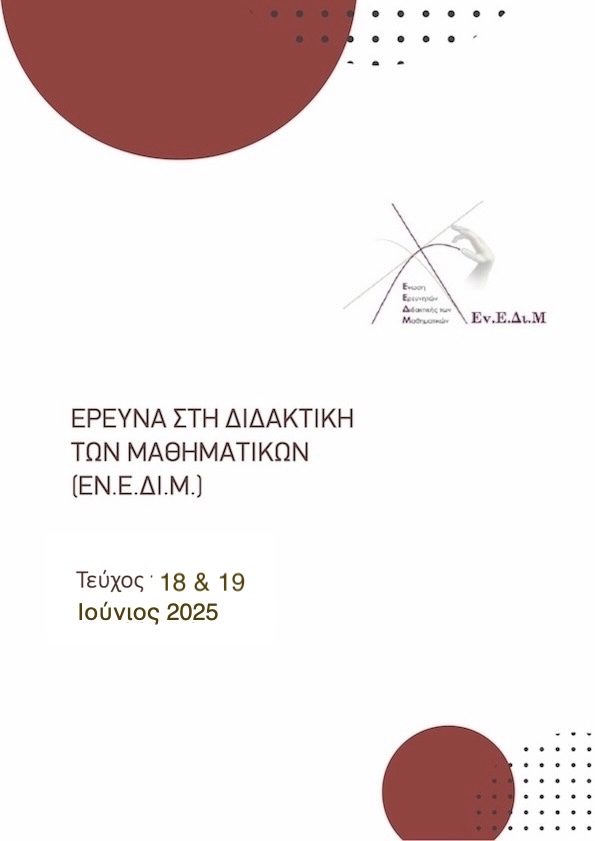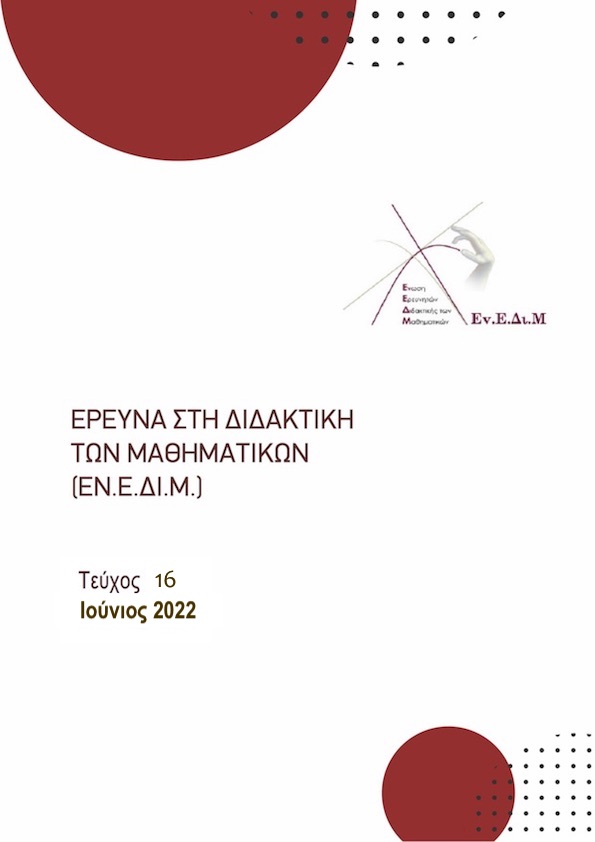Διερεύνηση της παιδαγωγικής γνώσης περιεχομένου των εκπαιδευτικών της δευτεροβάθμιας εκπαίδευσης που διδάσκουν Μαθηματικά
Abstract
Η παρούσα εργασία διερευνά τα χαρακτηριστικά του περιεχομένου και της οργάνωσης της παιδαγωγικής γνώσης των εκπαιδευτικών της δευτεροβάθμιας εκπαίδευσης που διδάσκουν Μαθηματικά. Για τους σκοπούς της έρευνας πραγματοποιήθηκαν ημι-δομημένες συνεντεύξεις με δύο εκπαιδευτικούς που διδάσκουν Μαθηματικά σε Γυμνάσια της Βορείου Ελλάδος, καθώς και ημι-δομημένες παρατηρήσεις της διδασκαλίας τους στη σχολική τάξη. Οι δύο συμμετέχοντες εκπαιδευτικοί διαθέτουν ικανοποιητική διδακτική εμπειρία αλλά έχουν διαφορετικές επαγγελματικές διαδρομές, καθώς η πρώτη είναι μαθηματικός, ενώ ο δεύτερος είναι φυσικός που διδάσκει για πρώτη φορά Μαθηματικά. Τα αποτελέσματα αναδεικνύουν μια πιο ευέλικτη αντίληψη και πρακτική του εκπαιδευτικού με μη παραδοσιακή πορεία επαγγελματικής ανάπτυξης σε σύγκριση με αυτές της εκπαιδευτικού με κλασική επαγγελματική ταυτότητα.
Article Details
- Zitationsvorschlag
-
Λιθαρής Κ., & Σακονίδης Χ. (2025). Διερεύνηση της παιδαγωγικής γνώσης περιεχομένου των εκπαιδευτικών της δευτεροβάθμιας εκπαίδευσης που διδάσκουν Μαθηματικά. Έρευνα στη Διδακτική των Μαθηματικών, (18 & 19), 153–176. Abgerufen von https://ejournals.epublishing.ekt.gr/index.php/enedim/article/view/36390
- Rubrik
- Άρθρα

Dieses Werk steht unter der Lizenz Creative Commons Namensnennung 4.0 International. Οι συγγραφείς των άρθρων που δημοσιεύονται στο περιοδικό διατηρούν τα δικαιώματα πνευματικής ιδιοκτησίας επί των άρθρων τους, δίνοντας στο περιοδικό το δικαίωμα της πρώτης δημοσίευσης. Άρθρα που δημοσιεύονται στο περιοδικό διατίθενται με άδεια Creative Commons BY και σύμφωνα με την άδεια μπορούν να χρησιμοποιούνται ελεύθερα, με αναφορά στο/στη συγγραφέα και στην πρώτη δημοσίευση.




